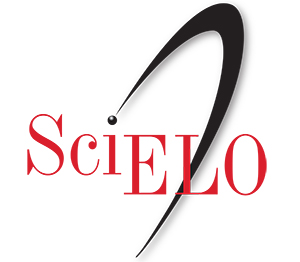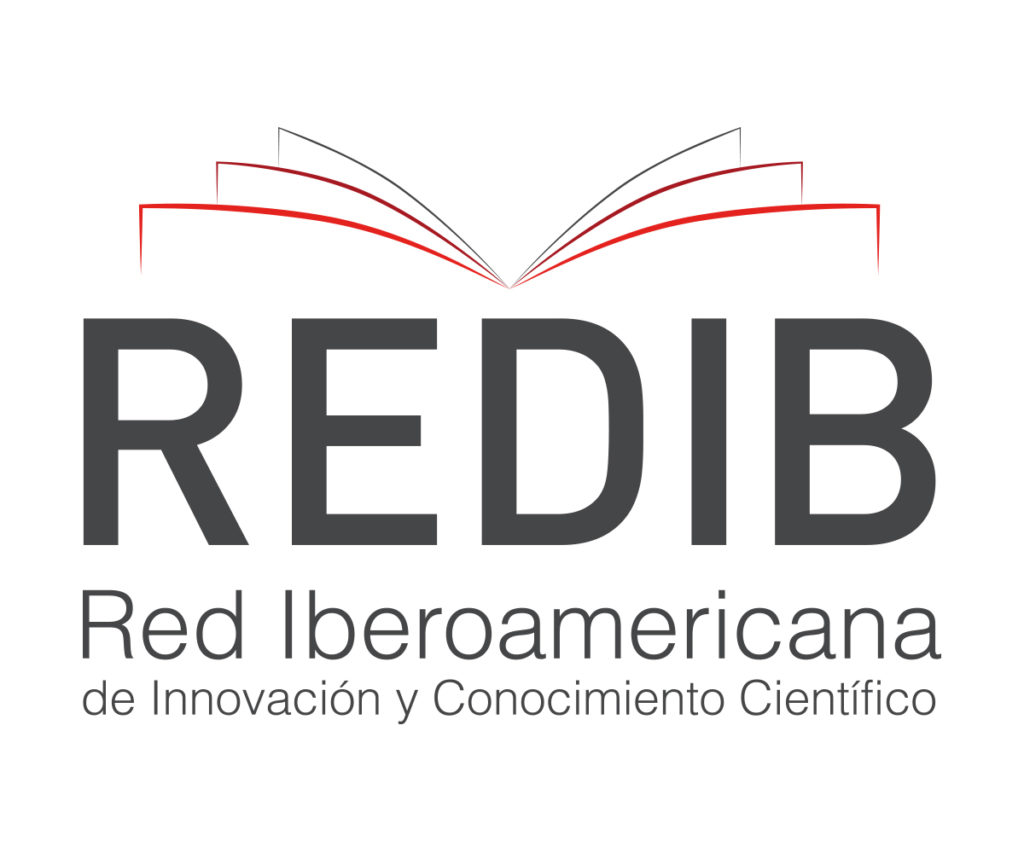Controversia con escépticos sobre la justificación de afirmaciones en filosofía de la ciencia con evidencia de la historia de la ciencia
Controversy with Skeptics about the Justification of Claims in Philosophy of Science with Evidence from the History of Science
DOI:
https://doi.org/10.15446/ideasyvalores.v71n8Supl.102871Palabras clave:
carga teoríca, circularidad epistémica, estudios de caso, evidencia histórica, historia y filosofía de la ciencia (es)case studies, epistemic circularity, theory-ladenness, historical evidence, history and philosophy of science (en)
Descargas
Una manera de integrar historia y filosofía de la ciencia consiste en usar estudios históricos de caso como evidencia de conclusiones filosóficas sobre la ciencia. A pesar de tener ejemplos representativos en la actualidad, varios autores han puesto esta metodología en tela de juicio con un argumento escéptico de circularidad epistémica. En este artículo reivindico el estatus epistémico de esta metodología mediante una estrategia que muestra que este argumento no funciona o que el escéptico estaría finalmente en desventaja dialéctica. Sobre esta base, señalo cómo esta controvers
The use of historical case studies as evidence for and against philosophical conclusions about science is a form of integrating history and philosophy of science. Although this methodology counts with representative examples today, a sceptical argument on epistemic circularity intended to defeat it has been presented. I defend here the epistemic status of this
methodology by arguing that either the sceptical argument fails, or the sceptic would ultimately be at a dialectical disadvantage. On these grounds, I suggest how this controversy with sceptics might be classified and should be conducted from here on.
Referencias
Barker, Peter and Bernard, Goldstein. “Realism and Instrumentalism in Sixteenth Century Astronomy: A Reappraisal.” Perspectives on Science 6.3 (1998): 232-258. DOI: https://doi.org/10.1162/posc_a_00550
Barseghyan, Hakob. The Laws of Scientific Change. Springer, 2015. DOI: https://doi.org/10.1007/978-3-319-17596-6
Biagioli, Mario. Galileo, Courtier. The Practice of Science in the Culture of Absolutism. University of Chicago Press, 1993. DOI: https://doi.org/10.7208/chicago/9780226218977.001.0001
Brooke, John. “Avogadro’s Hypothesis and Its Fate: A Case-Study in the Failure of CaseStudies.” History of Science 19.4 (1981): 235-273. DOI: https://doi.org/10.1177/007327538101900401
Burian, Richard. “The Dilemma of Case Studies Resolved: The Virtues of Using Case Studies in the History and Philosophy of Science.” Perspectives on Science 9.4 (2001): 383-404. DOI: https://doi.org/10.1162/106361401760375794
Cantor, Geoffrey. “The Edinburgh Phrenology Debate.” Annals of Science 32 (1975): 195-218. DOI: https://doi.org/10.1080/00033797500200251
Causey, Robert. “Avogadro’s Hypothesis and the Duhemian Pitfall. ”Journal of Chemical Education 48.6 (1971): 365-367. DOI: https://doi.org/10.1021/ed048p365
Chakravartty, Anjan. Scientific Ontology: Integrating Naturalized Metaphysics and Voluntarist Epistemology. Oxford University Press, 2017.
Chang, Hasok. “Preservative Realism and Its Discontents: Revisiting Caloric.” Philosophy of Science 70.5 (2003): 902-912. DOI: https://doi.org/10.1086/377376
Chang, Hasok. Inventing Temperature: Measurement and Scientific Progress. Oxford University Press, 2004. DOI: https://doi.org/10.1093/0195171276.001.0001
Chang, Hasok. “Beyond Case-Studies: History as Philosophy.” Integrating History and Philosophy of Science: Problems and Prospects. Edited by Seymour Mauskopf and Tad Schmaltz. Springer, 2011. 109-124. DOI: https://doi.org/10.1007/978-94-007-1745-9_8
Chang, Hasok. Is Water H2 O? Evidence, Realism and Pluralism. Springer, 2012. DOI: https://doi.org/10.1007/978-94-007-3932-1
Chang, Hasok. If You Can Spray Phlogiston, Is It Real? A Pragmatist Conception of Reality. Web: September 2021 [https://www.lse.ac.uk/philosophy/blog/2017/05/17/hasok-chang-a-pragmatist-conception-of-reality/].
Cohen, I. Bernard. “History and the Philosopher of Science.” The Structure of Scientific Theories Edited by Frederick Suppe. University of Illinois Press, 1981. 308-349.
Collins, Harry. Changing Order: Replication and Induction in Scientific Practice. University of Chicago Press, 1985.
Collins, Harry. “A Strong Confirmation of the Experimenters’ Regress.” Studies in History and Philosophy of Science 25.3 (1994): 493-503. DOI: https://doi.org/10.1016/0039-3681(94)90063-9
Daston, Lorraine. “History of Science without Structure.” Kuhn’s Structure of Scientific Revolutions at Fifty: Reflections on a Science Classic. Edited by Robert Richards and Lorraine Daston. University of Chicago Press, 2012. 115-132.
Donovan, Arthur, Larry Laudan and Rachel Laudan, eds. Scrutinizing Science: Empirical Studies of Scientific Change. Springer, 1992.
Franklin, Allan. The Neglect of Experiment. Cambridge University Press, 1986. DOI: https://doi.org/10.1017/CBO9780511624896
Franklin, Allan. “How to Avoid Experimenters’ Regress.” Studies in the History and Philosophy of Modern Physics 25 (1994): 463-491. DOI: https://doi.org/10.1016/0039-3681(94)90062-0
Franklin, Allan. “Calibration.” Perspectives on Science 5 (1997): 31-80. DOI: https://doi.org/10.1162/posc_a_00518
Franklin, Allan. Are There Really Neutrinos? An Evidential History. crc Press, 2018. DOI: https://doi.org/10.1201/9780429502231
Franklin, Allan. “The Theory-Ladenness of Experiment.” Journal for General Philosophy of Science 46.1 (2015): 155-166. DOI: https://doi.org/10.1007/s10838-015-9285-9
Franklin, Allan. What Makes a Good Experiment?: Reasons and Roles in Science. University of Pittsburgh Press, 2016. DOI: https://doi.org/10.2307/j.ctt1f89t46
Franklin, Allan et al. “Can a Theory-Laden Observation Test the Theory?” The British Journal for the Philosophy of Science 40.2 (1989): 229-231. DOI: https://doi.org/10.1093/bjps/40.2.229
Franklin, Allan and Laymon, Ronald. Once Can Be Enough. Decisive Experiments, No Replication Required. Springer, 2021. DOI: https://doi.org/10.1007/978-3-030-62565-8
Fuller, Steve. “Is History and Philosophy of Science Withering on the Vine?” Philosophy of the Social Sciences 21.2 (1991): 149-174. DOI: https://doi.org/10.1177/004839319102100201
Fuller, Steve. Philosophy of Science and Its Discontents. The Guilford Press, 1992.
Giere, Ronald. “History and Philosophy of Science: Intimate Relationship or Marriage of Convenience?” The British Journal for the Philosophy of Science 24.3 (1973): 282-297. DOI: https://doi.org/10.1093/bjps/24.3.282
Giere, Ronald. “History and Philosophy of Science: Thirty-Five Years Later.” Integrating History and Philosophy of Science: Problems and Prospects. Edited by Seymour Mauskopf and Tad Schmaltz. Springer, 2011. 59-66. DOI: https://doi.org/10.1007/978-94-007-1745-9_5
Gingerich, Owen. “‘Crisis’ vs Aesthetic in the Copernican Revolution.” Vistas in Astronomy 17.1 (1975): 85-95. DOI: https://doi.org/10.1016/0083-6656(75)90050-1
Graßhoff, Gerd. “Natural Law and Celestial Regularities from Copernicus to Kepler.” Natural Law and Laws of Nature in Early Modern Europe. Edited by Michael Stolleis and Lorraine Daston. Routledge, 2008. 143-161.
Hacking, Ian. Representing and Intervening: Introductory Topics in the Philosophy of Natural Science. Cambridge University Press, 1983. DOI: https://doi.org/10.1017/CBO9780511814563
Holton, Gerald. “Subelectrons, Presuppositions and the Millikan-Ehrenhaft Dispute.” The Scientific Imagination. Cambridge University Press, 1978. 25-83. DOI: https://doi.org/10.2307/27757378
Hull, David. “Testing Philosophical Claims about Science.” PSA: Proceedings of the Biennial Meeting of the Philosophy of Science Association 2 (1992): 468-475. DOI: https://doi.org/10.1086/psaprocbienmeetp.1992.2.192859
Kinzel, Katherina. “Narrative and Evidence. How Can Case Studies from the History of Science Support Claims in the Philosophy of Science?” Studies in History and Philosophy of Science Part A 49 (2015): 48-57. DOI: https://doi.org/10.1016/j.shpsa.2014.12.001
Kinzel, Katherina. “Pluralism in Historiography: A Case Study of Case Studies.” The Philosophy of Historical Case Studies. Edited by Tilman Sauer and Raphael Scholl. Springer, 2016. 123-150. DOI: https://doi.org/10.1007/978-3-319-30229-4_7
Kinzel, Katherina and Kush, Martin. “De-idealizing Disagreement, Rethinking Relativism.” International Journal of Philosophical Studies 26.1 (2018): 40-71. DOI: https://doi.org/10.1080/09672559.2017.1411011
Kosso, Peter. Reading the Book of Nature: An Introduction to the Philosophy of Science. Cambridge University Press, 1992. DOI: https://doi.org/10.1017/CBO9781139172554
Kusch, Martin. Relativism in the Philosophy of Science. Cambridge University Press, 2020. DOI: https://doi.org/10.1017/9781108979504
Ladyman, James. “Structural Realism versus Standard Scientific Realism: The Case of Phlogiston and Dephlogisticated Air.” Synthese 180.2 (2011): 87-101. DOI: https://doi.org/10.1007/s11229-009-9607-8
Lakatos, Imre & Elie Zahar. “Why did Copernicus’ Research Program Supersede Ptolemy’s?” The Copernican Achievement. Edited by Robert Westman. University of California Press, 1973. 354-383. DOI: https://doi.org/10.1525/9780520312890-019
Laudan, Larry. “A Confutation of Convergent Realism.” Philosophy of Science 48.1 (1981): 19 49. DOI: https://doi.org/10.1086/288975
Laudan, Larry. “Thoughts on hps: 20 Years Later.” Studies in History and Philosophy of Science Part A 20.1 (1989): 9-13. DOI: https://doi.org/10.1016/0039-3681(89)90030-7
Laudan, Larry. “The History of Science and the Philosophy of Science.” Companion to the History of Modern Science. Edited by Geoffrey Cantor, Robert Olby, John Christie and Jonathon Hodge. Routledge, 1990.
Laudan, Larry et al. “Scientific Change: Philosophical Models and Historical Research.” Synthese 69.2 Springer (1986): 141-223. DOI: https://doi.org/10.1007/BF00413981
Laudan, Rachel. “The ‘New’ History of Science: Implications for Philosophy of Science.” PSA: Proceedings of the Biennial Meeting of the Philosophy of Science Association 1992, 1993. 476-481. DOI: https://doi.org/10.1086/psaprocbienmeetp.1992.2.192860
Magnus, P. D. and Callender, Craig. “Realist Ennui and the Base Rate Fallacy.” Philosophy of Science 71.3 (2004): 320-338. DOI: https://doi.org/10.1086/421536
McMullin, Ernan. The Church and Galileo. Notre Dame University Press, 2005.
Miller, David. “The History and Philosophy of Science History.” Integrating History and Philosophy of Science: Problems and Prospects. Edited by Seymour Mauskopf and Tad Schmaltz Springer, 2011. 29-48.
Musgrave, Allan. “Why did Oxygen Supplant Phlogiston? Research Programmes in the Chemical Revolution.” Method and Appraisal in the Physical Sciences. The Critical Background to Modern Science, 1800–1905. Edited by Colin Howson. Cambridge University Press, 1976. 181-210. DOI: https://doi.org/10.1017/CBO9780511760013.005
Nickles, Thomas. “Remarks on the Use of History as Evidence.” Synthese 69.2 (1986): 253-266. DOI: https://doi.org/10.1007/BF00413983
Nickles, Thomas “Philosophy of Science and History of Science.” Osiris 10 (1995): 139-163. DOI: https://doi.org/10.1086/368747
Pinnick, Cassandra and Gale, George. “Philosophy of Science and History of Science: A Troubling Interaction.” Journal for General Philosophy of Science 31 (2000): 109-125. DOI: https://doi.org/10.1023/A:1008353021407
Pitt, Joseph. “The Dilemma of Case Studies: Toward a Heraclitian Philosophy of Science.” Perspectives on Science 9 (2001): 373-382. DOI: https://doi.org/10.1162/106361401760375785
Psillos, Stathis. “A Philosophical Study of the Transition from the Caloric Theory of Heat to Thermodynamics: Resisting the Pessimistic Meta-Induction.” Studies in History and Philosophy of Science Part A 25.2 (1994): 159-190. DOI: https://doi.org/10.1016/0039-3681(94)90026-4
Psillos, Stathis. Scientific Realism: How Science Tracks Truth. Routledge, 1999.
Richards, Robert. “Arguments in a Sartorial Mode, or the Asymmetries of History and Philosophy of Science.” psa: Proceedings of the Biennial Meeting of the Philosophy of Science Association 1992 2 (1993): 482-489. DOI: https://doi.org/10.1086/psaprocbienmeetp.1992.2.192861
Riesch, Hauke. “Philosophy, History and Sociology of Science: Interdisciplinary Relations and Complex Social Identities.” Studies in History and Philosophy of Science Part A 48 (2014): 30-37. DOI: https://doi.org/10.1016/j.shpsa.2014.09.013
Rossi, Paolo. I ragni e le formiche: un’apologia della storia della scienza. Il Mulino, 1986.
Rupik, Gregory. “Scientonomy: A Bold New Vision for an Integrated History and Philosophy of Science.” The Past, Present, and Future of Integrated History and Philosophy of Science. Edited by Emily Herring et al. Routledge, 2019. 19-37. DOI: https://doi.org/10.4324/9781351214827-3
Schickore, Jutta. “More Thoughts on HPS: Another 20 Years Later.” Perspectives on Science 19.4 (2011): 453-481. DOI: https://doi.org/10.1162/POSC_a_00049
Schickore, Jutta. “Explication Work for Science and Philosophy.” Journal of the Philosophy of History 12.2 (2018): 191-211. DOI: https://doi.org/10.1163/18722636-12341387
Shapin, Steven. “Phrenological Knowledge and the Social Structure of Early Nineteenthcentury Edinburgh.” Annals of Science 32 (1975): 219-243. DOI: https://doi.org/10.1080/00033797500200261
Shapin, Steven. “History of Science and its Sociological Reconstructions.” History of Science 20 (1982): 157-211. DOI: https://doi.org/10.1177/007327538202000301
Shapin, Steven and Simon Schaffer. Leviathan and the Air-Pump: Hobbes, Boyle, and the Experimental Life. Princeton University Press, 2011. DOI: https://doi.org/10.1515/9781400838493
Stanford, Kyle. Exceeding Our Grasp: Science, History, and the Problem of Unconceived Alternatives. Oxford University Press, 2006. DOI: https://doi.org/10.1093/0195174089.001.0001
Stanford, Kyle. “Unconceived Alternatives and the Strategy of Historical Ostension.” The Routledge Handbook of Scientific Realism. Edited by Juha Saatsi. Routledge, 2017. 212-224. DOI: https://doi.org/10.4324/9780203712498-18
Stegenga, Jacob. “Robustness, Discordance, and Relevance.” Philosophy of Science 76.5 (2009): 650-661. DOI: https://doi.org/10.1086/605819
Steinle, Friedrich and Burian, Richard M. “Special Issue: History of Science and Philosophy of Science.” Perspectives on Science 10 (2002): 391-397. DOI: https://doi.org/10.1162/106361402322288020
Vicedo, Marga. “Is the History of Science Relevant to the Philosophy of Science?” PSA: Proceedings of the Biennial Meeting of the Philosophy of Science Association. 22(1992): 490-496. DOI: https://doi.org/10.1086/psaprocbienmeetp.1992.2.192862
Vickers, Peter. “Historical Challenges to Realism.” The Routledge Handbook of Scientific Realism. Edited by Juha Saatsi. Routledge, 2017. 48-59. DOI: https://doi.org/10.4324/9780203712498-5
Votsis, Ioannis. “The Prospective Stance in Realism.” Philosophy of Science 78.5 (2011): 1223 1234. DOI: https://doi.org/10.1086/662535
Zammito, John. A Nice Derangement of Epistemes: Post-positivism in the Study of Science from Quine to Latour. Chicago University Press, 2004.
Cómo citar
MODERN-LANGUAGE-ASSOCIATION
ACM
ACS
APA
ABNT
Chicago
Harvard
IEEE
Turabian
Vancouver
Descargar cita
Licencia
Derechos de autor 2022 Los derechos son del autor(es), quien(es) puede re-publicar en parte o en su totalidad el documento ya publicado en la revista siempre y cuando se dé el debido reconocimiento a Ideas y Valores

Esta obra está bajo una licencia internacional Creative Commons Atribución-NoComercial-SinDerivadas 4.0.
De acuerdo con la Licencia Creative Commons Atribución-No Comercial-SinDerivar 4.0 Internacional. Se autoriza copiar, redistribuir el material en cualquier medio o formato, siempre y cuando se conceda el crédito a los autores de los textos y a Ideas y Valores como fuente de publicación original. No se permite el uso comercial de copia o distribución de contenidos, así como tampoco la adaptación, derivación o transformación alguna de estos sin la autorización previa de los autores y de la dirección de Ideas y Valores. Para mayor información sobre los términos de esta licencia puede consultar: http://creativecommons.org/licenses/by-nc-nd/4.0/legalcode.















.jpg)











